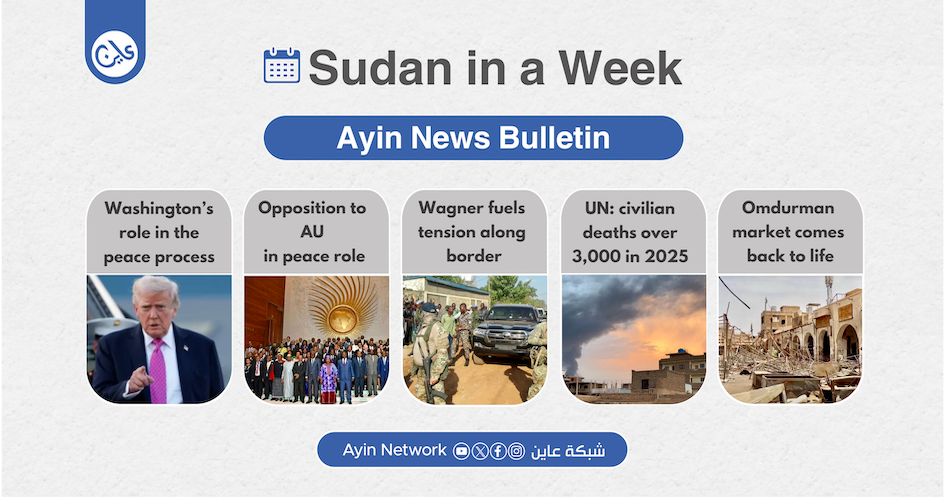Sudan in a week: Ayin News Bulletin #2
16 September 2025
To keep our readers informed of the multitude of events taking place in Sudan amidst the ongoing, devastating war, we have developed a series of weekly news briefs, covering 10 major topics of the week.
In this week’s edition:
- Washington’s role in the peace process
- Opposition to AU in peace role
- Wagner fuels tension along Sudan-CAR border
- Islamic battalion opens camp in northern Sudan
- Rains bring lull to Kordofan fighting
- El Fasher fight continue, new military formation in Darfur
- UN: civilian deaths over 3,000 in 2025
- Diplomatic blunder mars trip to Saudi Arabia
- Dengue fever worsens amidst a lack of medicine
- Omdurman market comes back to life
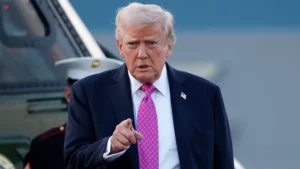 Washington: Sudanese must decide their own path
Washington: Sudanese must decide their own path
U.S. officials say Washington will not dictate Sudan’s political future, stressing Sudanese must chart their own course after a ceasefire.
U.S. State Department officials told Sudanese community leaders in Washington last week that the U.S. will not provide a roadmap for resolving Sudan’s conflict, stressing that Sudanese must determine their own future once a ceasefire is secured.
According to participants, officials also said Washington will not extend economic support for efforts to restore a civilian government. They raised concerns about President Donald Trump’s wavering commitment to long-running crises, citing Ukraine as an example.
At the same time, U.S. officials underlined that the Trump administration is working to secure a ceasefire by pressing Sudan’s warring parties and engaging regional and international actors.
Sources said Washington views the UAE as pushing a narrative that frames the Rapid Support Forces (RSF) as bulwarks against “Iran-Hamas-Muslim Brotherhood” influences—a line that has shaped Saudi and Egyptian support for the Sudanese army. However, the U.S. insists the armed forces should not assume political power.
Officials also stressed that the Trump administration stands firmly with Israel and would oppose any Islamist role in Sudan’s future governance.
Separately, an African diplomat revealed that IGAD and the African Union are preparing a new initiative, building on the Jeddah Declaration, to begin with a ceasefire and Sudanese-led political talks planned for October.
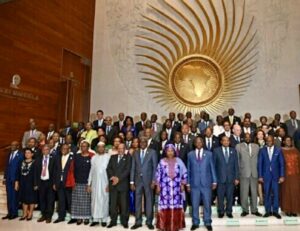 African Union consultations on Sudan face resistance
African Union consultations on Sudan face resistance
Planned AU political talks in Addis Ababa face boycotts and criticism from key Sudanese groups.
Plans by the African Union to hold political consultations on Sudan in Addis Ababa from October 6–10 face mounting challenges after the Civil Democratic Alliance (Somoud) announced it will not participate.
Somoud officials argue that the AU should await the outcome of the Quartet’s roadmap—backed by the U.S., UAE, Saudi Arabia, and Egypt—that calls for a three-month ceasefire before any political dialogue begins.
AU invitations were extended to pro-army forces, including Mubarak al-Fadil’s National Consensus and the Democratic Bloc, but excluded the Sudan Founding Alliance, which involves the Rapid Support Forces. This prompted criticism from several groups, who say the AU process favours army-aligned Port Sudan-based actors.
Jaafar Hassan, a Somoud spokesman, said peace requires participation by all three main centres of power—Port Sudan, Nyala, and the anti-war forces—to ensure a Sudanese-owned political process.
The Founding Council government also rejected the AU’s plan, calling it biased and warning it would not lead to peace or stability. Instead, both Somoud and the Founding Council called for a humanitarian truce and support for the Quartet roadmap.
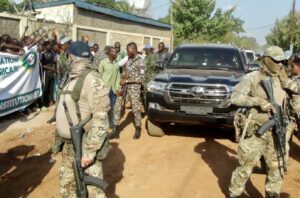 Wagner fuels tensions on Sudan–CAR border
Wagner fuels tensions on Sudan–CAR border
Russian Wagner fighters accused of killings and displacements of Sudanese near CAR border.
Russian Wagner Group fighters stationed in the Central African Republic (CAR) have stepped up attacks on Sudanese communities living near the border, heightening tensions in an already volatile region.
Residents reported that Wagner forces killed six young men in the CAR town of Al-Suhaib last week, forcing hundreds of Sudanese families to flee. Witnesses said Wagner patrols have been detaining, torturing, and killing Sudanese suspected of aiding the RSF.
The violence comes amid renewed clashes between CAR’s Kara community and Sudanese Ta’aisha groups, both active along the border. Local leaders accuse Wagner of backing Kara militias to displace Sudanese farmers and herders.
Analysts believe Russia’s involvement stems from security agreements with CAR’s government, tied to Moscow’s broader interests in Africa. Wagner has also been accused of facilitating gold smuggling and cross-border crimes.
Sudanese civil groups allege coordination between the Sudanese army and Wagner, warning of a wider regional conflict if the violence continues.
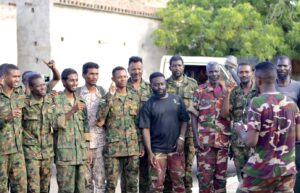 Islamist battalion opens camp in northern Sudan
Islamist battalion opens camp in northern Sudan
Hardline militia linked to Sudan’s army recruits youth in Wadi Halfa despite local opposition.
The Al-Bara’ bin Malik Battalion, a hardline Islamist militia allied with Sudan’s army, has defied local opposition to open a recruitment and training camp near Wadi Halfa, on the Egyptian border.
Despite objections from the Wadi Halfa Supreme Council, the group has launched a campaign to enlist unemployed and out-of-school youth displaced by the war. Dozens have already joined training exercises.
Local activists say the battalion is exploiting Islamist networks in the region, setting up what it calls the “Wadi Halfa Sector.” Rights groups warn the militia, sanctioned by the U.S., uses fear of RSF attacks to justify its expansion.
Human rights activist Mohammed Karim warned that the battalion may soon deploy armed men at crossings and roads, raising fears of violence against civilians.
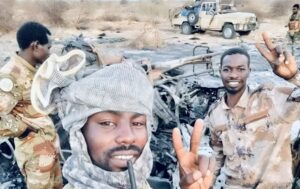 Rains bring lull to Kordofan battles
Rains bring lull to Kordofan battles
Seasonal rains slow fighting but both army and RSF prepare for fresh offensives in North Kordofan.
Heavy rains have slowed fighting between Sudan’s army and the RSF in North Kordofan after months of fierce clashes.
Last week, RSF forces attacked an army unit near Rahid al-Nuba, sparking a battle on the road linking Omdurman and Bara. RSF claimed victory, releasing footage of destroyed equipment, though the army insisted it had repelled the assault.
Military sources said the army is regrouping to retake strategic towns, including Umm Sayala and Jabrat al-Sheikh, to secure routes to Omdurman and Bara. The RSF, meanwhile, is reinforcing positions to maintain pressure on El Obeid and surrounding areas.
Both sides continue to prepare for larger offensives despite the temporary lull caused by seasonal rains.
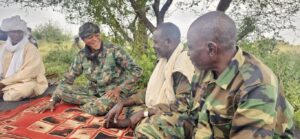 El Fasher battles continue, new military formation in Darfur
El Fasher battles continue, new military formation in Darfur
RSF drone strike on mosque in El Fasher kills more than 60 civilians amid escalating clashes.
El Fasher, the capital of North Darfur, endured one of the bloodiest weeks of the war as clashes between the Sudanese army, its allied joint force, and the RSF escalated sharply.
On Friday, an RSF drone strike targeted worshippers at Al-Safiya Mosque during dawn prayers, killing more than 60 civilians. The attack shocked residents already suffering from shortages of food, water, and medicine.
The fighting has devastated the city, with artillery fire exchanged daily across neighborhoods. Aid groups warn that the humanitarian crisis in El Fasher is worsening rapidly as displaced families crowd into makeshift shelters.
Against this backdrop, the Sudanese Revolutionary Awakening Council, led by Musa Hilal, reached an agreement with Darfuri armed groups allied to the army to form a new joint force.
The deal, announced Saturday, aims to coordinate on military and political fronts, combat looting, reopen markets and roads, and protect the harvest season. Observers say the move signals attempts to consolidate pro-army militias under a unified command in Darfur.
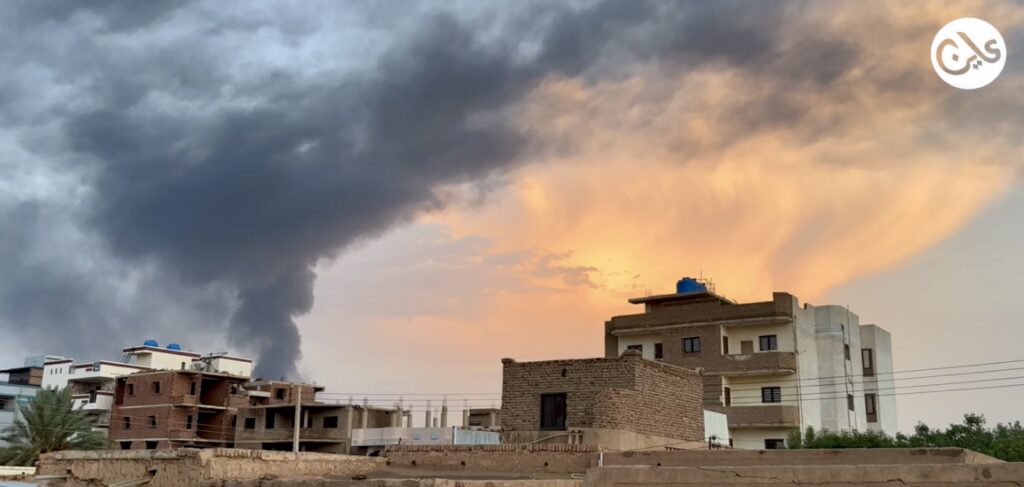 UN: Civilian deaths in Sudan exceed 3,000 this year
UN: Civilian deaths in Sudan exceed 3,000 this year
UN reports nearly 3,400 civilians killed in Sudan since January, with atrocities widespread in Darfur.
The UN warned Friday of surging violence in Sudan, reporting that at least 3,384 civilians have been killed since January 2025, with the majority of casualties in Darfur.
UN Human Rights Chief Volker Türk said his office has documented widespread atrocities, including sexual violence, indiscriminate shelling, and summary executions of children. He noted nearly 1,000 civilians were executed without trial in the first half of the year.
Türk stressed that impunity is fueling the bloodshed, urging accountability as the only way to stop violations. He warned the actual death toll is likely far higher than reported.
According to the Sudanese Doctors Network, more than 230 doctors have been killed since the conflict began in April 2023, further crippling health services.
Legal experts say both warring sides are violating international humanitarian law, which prohibits targeting civilians, schools, hospitals, and places of worship. Rights groups cite the recent mosque attack in El Fasher as an example of blatant disregard for these norms.
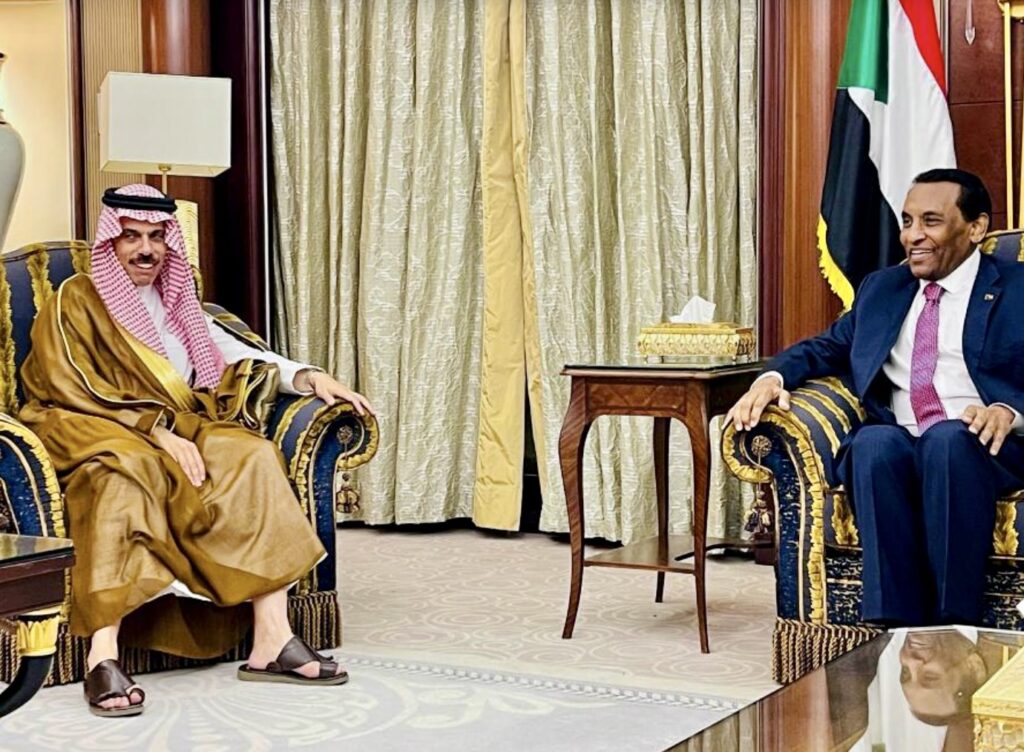 Diplomatic blunder mars Sudan PM’s Saudi trip
Diplomatic blunder mars Sudan PM’s Saudi trip
Prime Minister Kamil Idris’s Saudi visit ends in embarrassment after failure to secure senior meetings.
Prime Minister Kamil Idris’s much-publicized trip to Saudi Arabia collapsed in embarrassment last week, exposing deep rifts within Sudan’s transitional government.
Despite announcing plans to meet Crown Prince Mohammed bin Salman, Idris held no high-level talks. Instead, the most senior Saudi official he met was Foreign Minister Farhan bin Abdullah.
Diplomatic sources told Ayin that the failure stemmed from the Sudanese side’s failure to send an advance team to arrange meetings. Tensions between Idris’s office and the Foreign Ministry reportedly worsened the fiasco.
The absence of Sudan’s ambassador at Idris’s airport reception underscored the disarray. Sources accused Idris aide Badr al-Din al-Jaafari of deliberately sidelining the Foreign Ministry in the planning process.
The episode contrasted sharply with Pakistan’s Prime Minister, who was received with full honors and signed a defense pact with Riyadh during the same week.
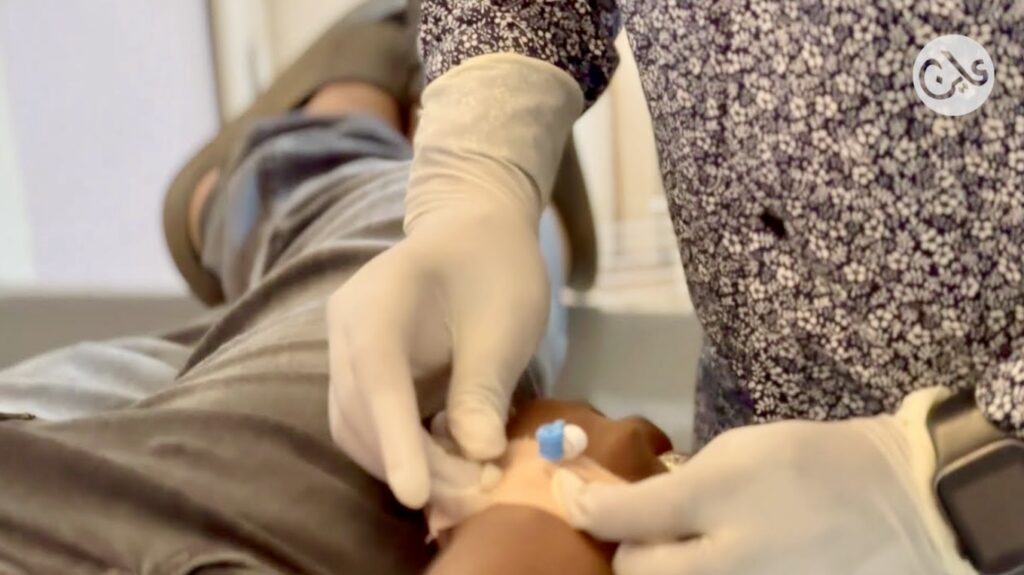 Dengue epidemic worsens amid medicine shortage
Dengue epidemic worsens amid medicine shortage
Sudan’s dengue fever outbreak spreads to 17 states as patients face soaring drug prices and shortages.
Sudan’s dengue fever outbreak is spiraling, with cases reported in 17 states and more than 6,000 officially confirmed infections, though pharmacists warn the real figure is far higher.
In Khartoum, patients face a dire shortage of Panadol drops, the key intravenous treatment. Prices have soared, with even basic pills costing thousands of Sudanese pounds on the black market. Hospitals are overwhelmed and private clinics unaffordable for most.
Pharmacist Ammar Ali, himself infected, said he has been unable to find medicine for his family, describing the crisis as “too great to describe.”
Community initiatives are stepping in with home nursing care, but even volunteer-run programs are hampered by shortages. Some hospitals ration Panadol drops, charging patients, while offering them free only to those admitted.
Activists warn that unregulated aid efforts could fuel corruption, urging donors to channel support through hospitals and monitored drug funds to ensure medicines reach patients in need.
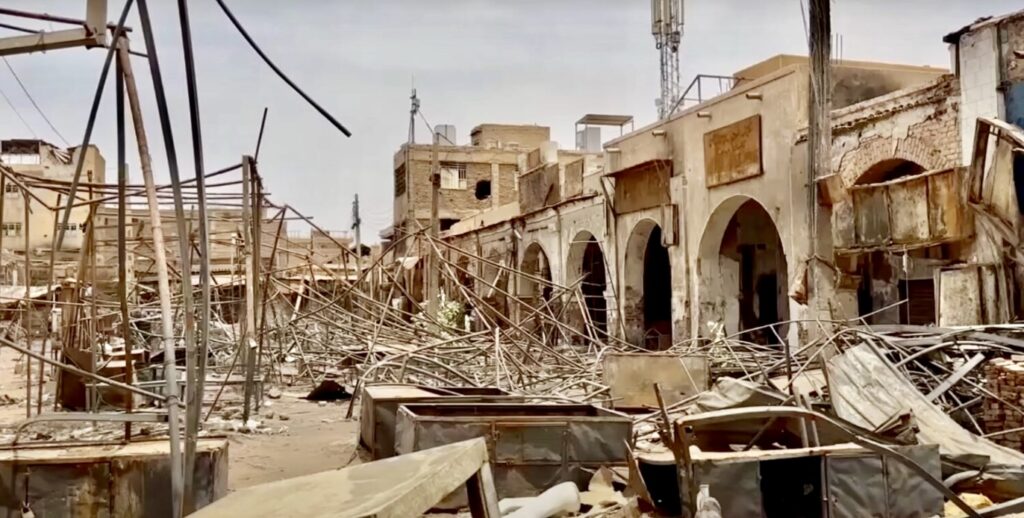 Omdurman market struggles back to life
Omdurman market struggles back to life
Once-bustling trading hub slowly reopens as merchants return to burned and looted stalls.
Omdurman Grand Market, once a bustling hub of Sudanese commerce, is slowly reopening after being devastated by fighting between the army and RSF in Khartoum.
Traders describe returning to burned-out shops and looted stalls. “All my goods were stolen, and I lived for a year on support from my brothers abroad,” said Abdul Qader, who has now reopened his agricultural products store.
The army secured control of the market in March 2024, and since then, residents have been trickling back, reviving economic life in Sudan’s largest trading hub.
Still, much of the market remains in ruins. Engineers argue reconstruction is an opportunity to modernize the chaotic layout, widen streets, and improve infrastructure.
For now, merchants and shoppers cling to nostalgia for the centuries-old market while hoping it can once again reclaim its role as Khartoum’s economic heart.


